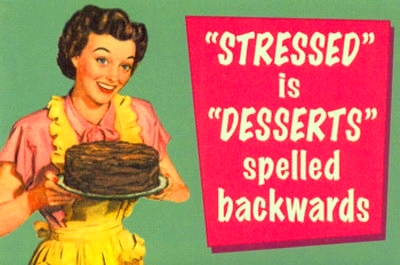 Do you overeat when you’re sad? Or do you overeat when you’re happy? Or maybe you overeat when you’re stressed, tired, bored or feeling bubbly? If you so, you’re an emotional eater. Emotions are powerful and can overtake your best intentions quicker than you can lace up your walking shoes.
Do you overeat when you’re sad? Or do you overeat when you’re happy? Or maybe you overeat when you’re stressed, tired, bored or feeling bubbly? If you so, you’re an emotional eater. Emotions are powerful and can overtake your best intentions quicker than you can lace up your walking shoes.
The problem with emotional eating is that it can sabotage your diet because, let’s face it, no one reaches for broccoli when they’re emotional. Emotions call for foods that wreak havoc on your diet.
That’s the bad news.
The good news is that, as powerful as emotions are, your mind is stronger—you can train your brain to ignore emotional cravings. Here’s how:
Have a care, but be aware. Emotions are the product of our body’s response to situations. They’re good for you. So allow yourself to feel stress/anger/joy/boredom/giddiness. Just make sure you’re aware that these emotions sometimes cause you to overeat.
If you recognize the reason—the emotion—that’s causing you to eat compulsively, you’ll be better positioned to stop the process before it begins.
Pick up a healthy habit.
Stopping yourself from being an emotional eater means replacing the cheeseburgers and chocolate-covered cherries with something else, something healthy.
That means you need to pick up a healthy habit.
What if every time you felt the uncontrollable urges to eat you went for a walk, took two trips up and down the steps or ate a piece of celery? Imagine the calories you wouldn’t be ingesting.
Eliminate emotional eating by doing something (anything) else that’s healthy or keeps you happy. Post a positive message on Facebook. Step outside for a minute. After a couple of weeks, your mind and body will start to expect these things instead of expecting something sugary.
Keep it real.
Nobody is perfect. Everybody makes mistakes from time to time. So, set a goal to eliminate emotional eating from your life, but keep it realistic. Allow yourself to make a mistake. Just recognize it when it happens and get back on track.
If you’re too hard on yourself, you’ll get emotional—and you know what that can lead to…





